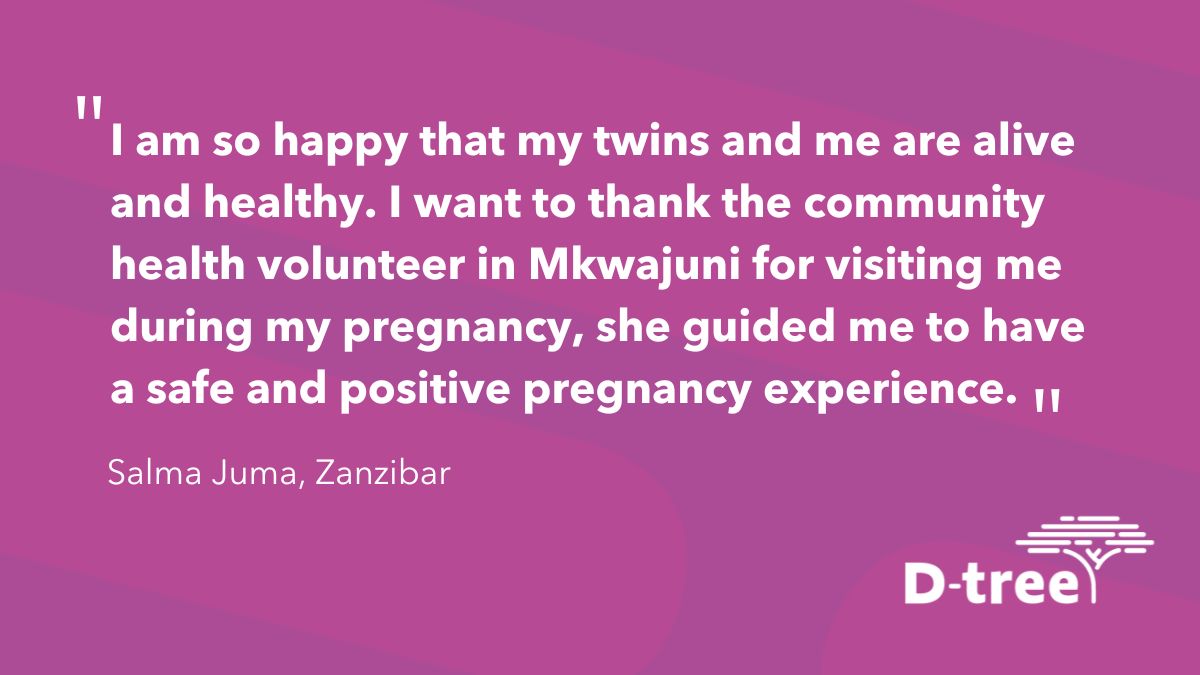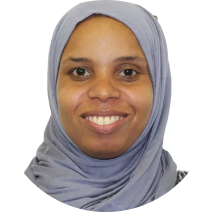Meet Salma Juma, a woman in Zanzibar who got pregnant with twins and benefited from the services of Community Health Volunteers (CHVs).
Salma Juma lives in Mkwajuni in Zanzibar and when she got pregnant with twins she initially wanted to go to her mother’s village in mainland Tanzania to deliver the babies, but the nearest health facility from her mother’s village is far so she was concerned that she might not be able to reach the facility in time when she goes into labor, but at the same time she strongly felt like she wanted to have her mother by her side during birth to support her. In Mkwajuni, the Kivunge Cottage Hospital, is not far from where Salma lives and this would be the safer option for her and the babies. Salma is not the first woman in Zanzibar faced with thoughts like this.
To address the gaps in maternal and child service provision, the Zanzibar Ministry of Health has as part of their Community Health Strategy and the D-tree led Jamii ni Afya program, deployed digitally-enabled CHVs to engage communities by promoting behaviors to seek care at the appropriate facilities and at the right time. With the support of digital devices, CHVs are supporting women attending antenatal counseling, birth preparedness and improving facility delivery.
Salma shared her concerns with her husband, Mzee Juma, who had previously been in contact with CHVs in Zanzibar. He reached out to one of the volunteers to guide them to make this important decision.

After the first visit from a CHV, Salma learned that her pregnancy was considered high risk, and following this, the CHV visited her regularly to inform her about the risks and how she can mitigate them. She was also informed about how she can prepare for a safe facility delivery, which was crucial so that Salma knew the early signs of labor. As soon as she noticed the first signs, she went to Kivunge Cottage Hospital and delivered her twin babies safely.
“I am so happy that my twins and me are alive and healthy. I want to thank the community health volunteer in Mkwajuni for visiting me during my pregnancy, she guided me to have a safe and positive pregnancy experience. She taught me so much and I am now advising other families in the community to always accept the services provided by the CHVs and visit our health center so that the pregnant women and their babies’ lives can be saved.”, says Salma.
Thanks to the financial support from Enabel, the Belgian Development Agency, through the Wehubit Program, we have been able to refine the Jamii ni Afya app and test machine learning to provide better and more personalized care for at-risk pregnant women, such as Salma. Read more about this work here. You can also learn more about how we support communities through strengthening health workforces here.

